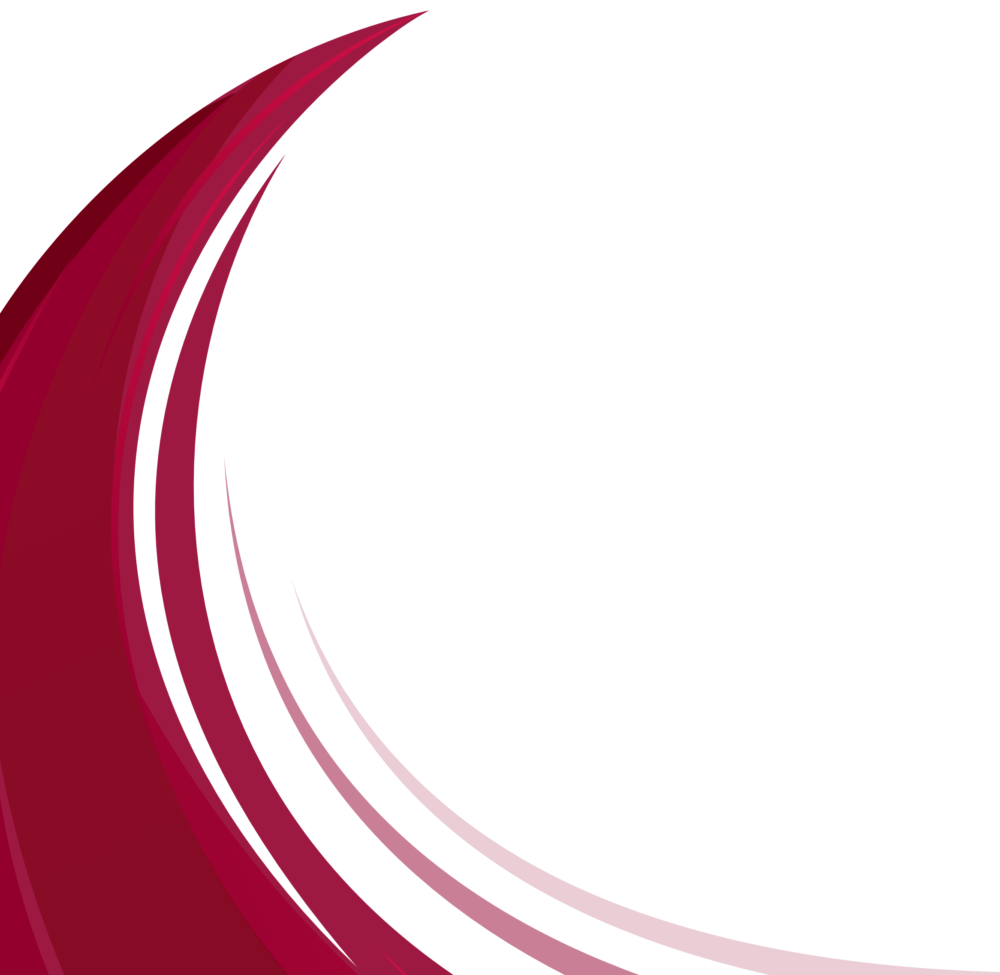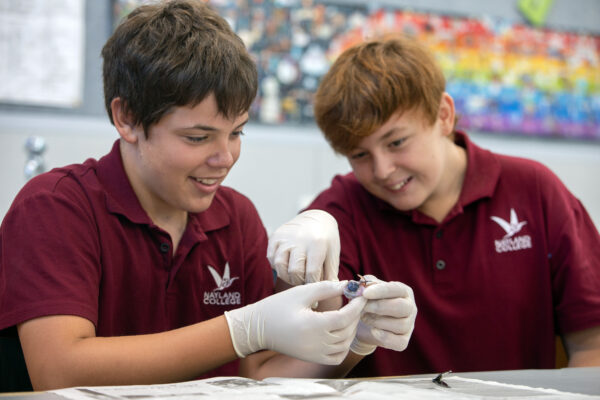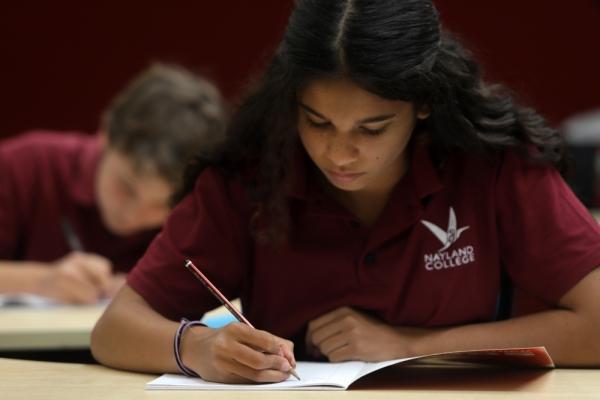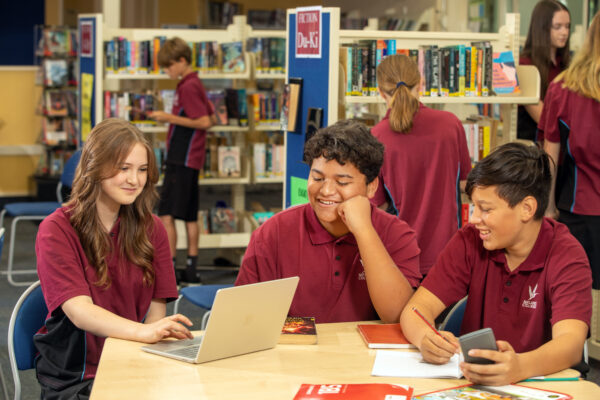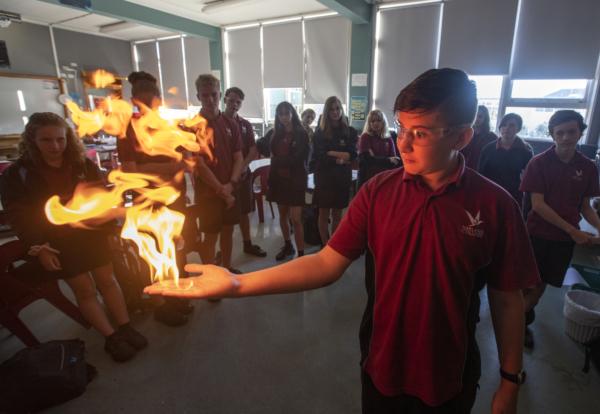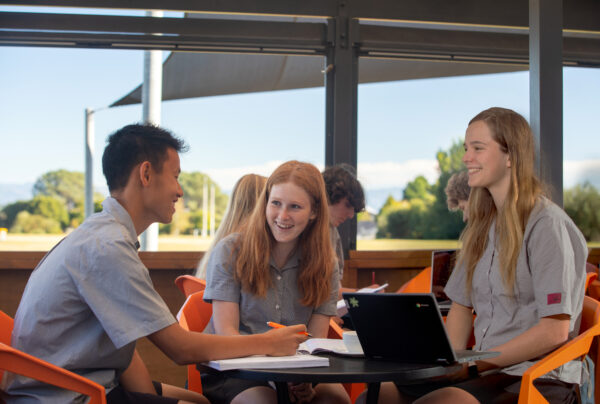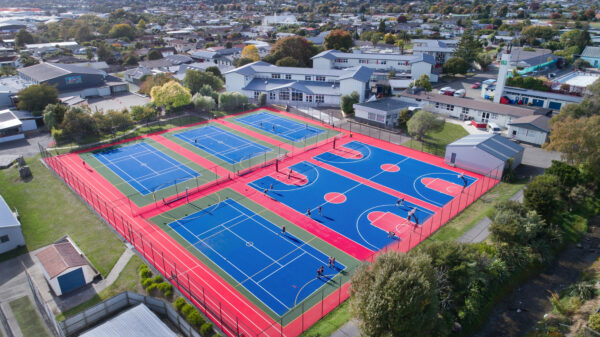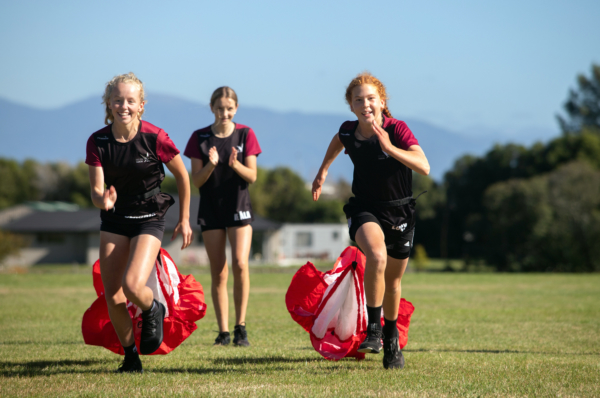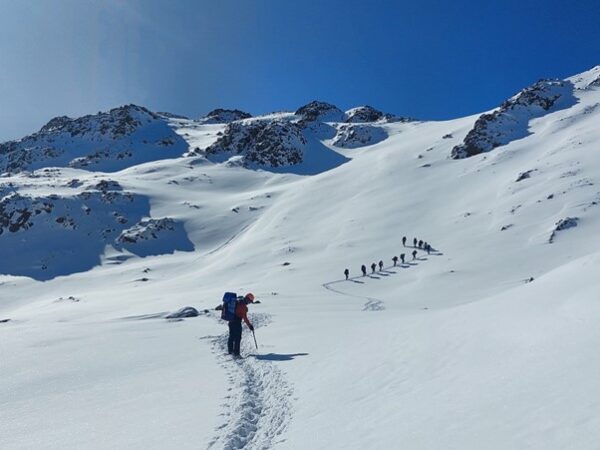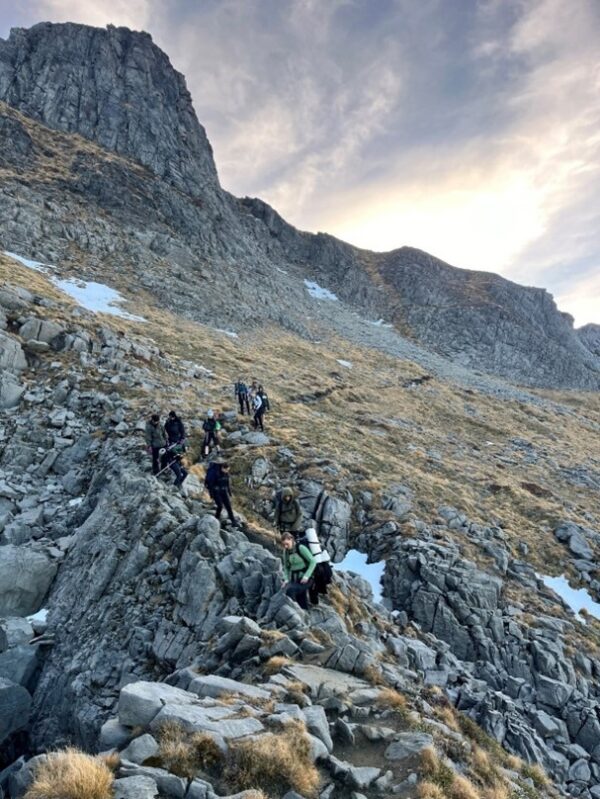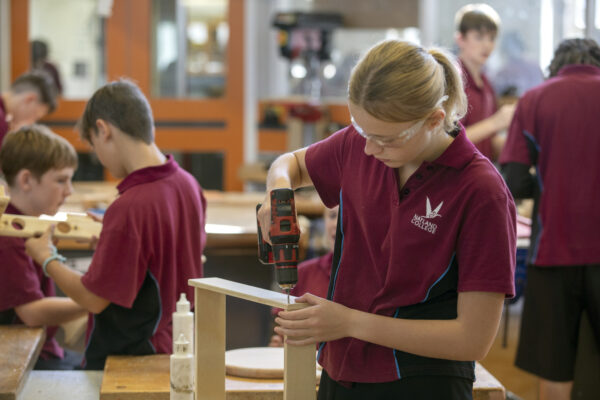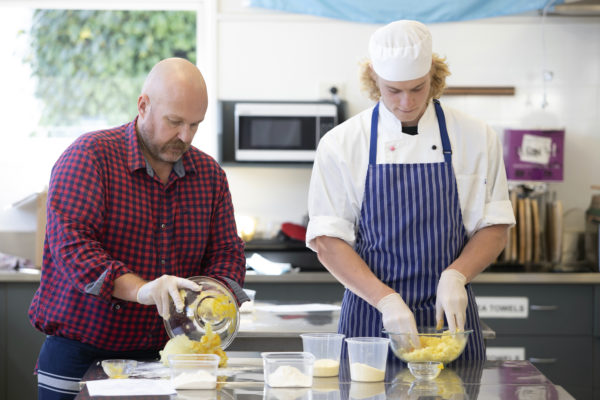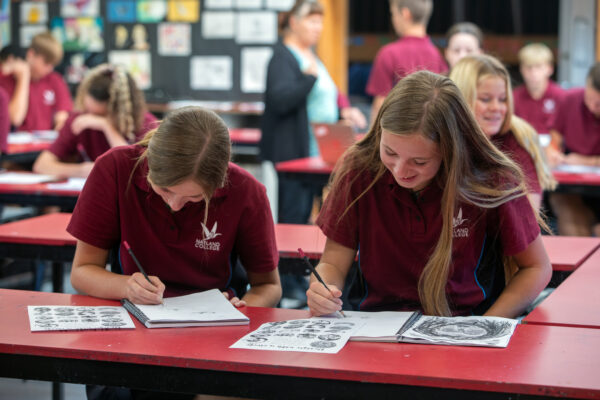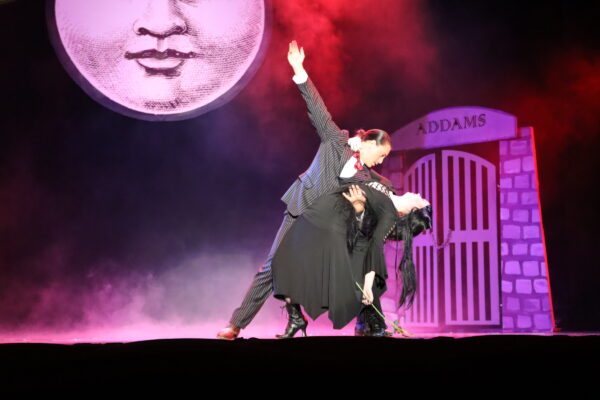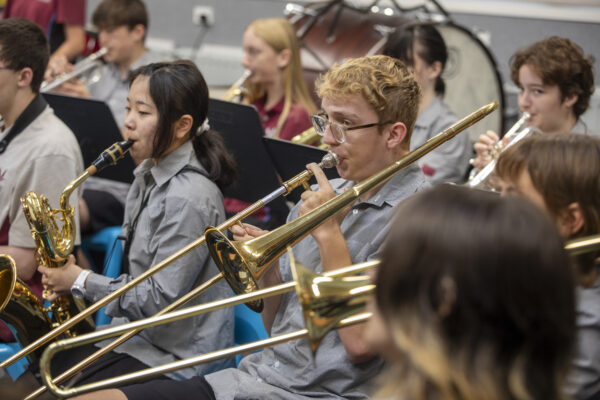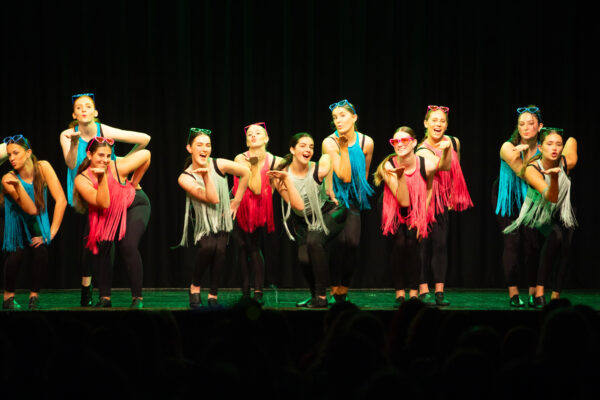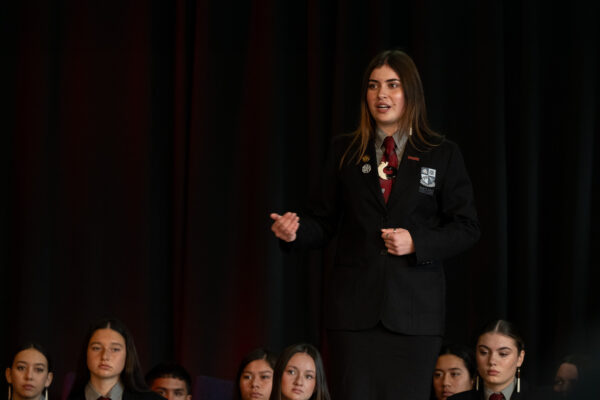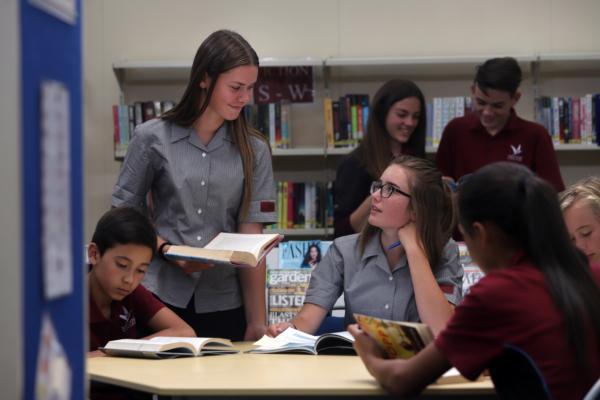LEARNING AREAS
Curriculum Overview
Nayland College offers a broad and innovative curriculum designed to cater for individual student needs and passions. Our SchoolPoint Subject Selection site gives details on every course available at Nayland College.
In the junior school we focus on forming educationally powerful relationships with teachers and peers, feeling valued and connected, and developing the foundational skills for academic excellence. In Year 9, students are assigned to a 'core class' for the core aspects of their learning - English, Maths, Science, Social Studies, PE & Health. In term one our thematic unit 'Ko Wai Tātou - This is us,' supports the transition to college life. Alongside the core programme, students can select from a range of exciting arts, technology and choice modules.
In Year 10, students can select all of their learning from a range of engaging and innovative modules. Our passionate staff have developed an exciting and interesting range of courses, which cover all of the key competencies and skills to take students confidently into the senior school and NCEA. Examples of these modules include 'Planet Earth and its History,’ 'Waka Ama and Wayfinding,' ‘School of Rock,' 'All About Media' and lots more.
As students start to specialise according to their strengths and interests, there are varied pathways that can best prepare them for their next steps beyond school. These include academic courses in preparation for study at university or polytechnics, and the Gateway and award-winning Trades Academy programmes.
Gateway and Trades Academy programmes offer learning in conjunction with NMIT, Whenua-iti Outdoors and local employers to facilitate NCEA success while also giving students the ideal foundation for movement into apprenticeships and employment.
English
Ko te reo te tuakiri
Ko te reo tōku ahurei
Ko te reo te ora.
Language is my identity
Language is my uniqueness
Language is life
The Nayland College English programme focuses on the power of language and the fundamental idea that our identities are expressed through the language we use and the stories we tell. Students explore the ways language can shape and enrich their own lives and the lives of others. We offer a wide range of learning experiences in English to develop students’ understanding through both Making Meaning (viewing, listening, reading) and Creating Meaning (presenting, speaking, writing).
As a partnership language in Te Tiriti o Waitangi, the Nayland College English Department is committed to embracing and enhancing students’ understanding of and confidence in aspects from mātauranga Māori and te ao Māori. These are essential aspects to the study of English in Aoteoroa.
Literacy in English gives students access to the understanding, knowledge, and skills they need to gain success across all learning areas and to participate fully in the social, cultural, and political life of Aotearoa and the wider world.
Students explore a range of strategies to understand, analyse and produce increasingly complex and engaging texts. Learning centres around themes that have meaning in students’ lives. These themes support them to develop and broaden their understanding of the world in which they live. Through a range of texts, students engage in learning to understand their own perspectives and those of others to foster empathy and develop their awareness of the lives of others.
The extracurricular life of the school offers opportunities for students with a strong interest in English. Nayland students participate in writing, speaking, and debating competitions locally, regionally and to a national level.
To find out more contact Trudy Harvey (trudy.harvey@nayland.school.nz)
Mathematics and Statistics
The Nayland College Mathematics department is a group of enthusiastic and professional teachers. The department successfully supports students in their learning, from basic maths skills for everyday life through to preparing students for university and scholarship.
Dedicated staff also provide free extra tutorial help outside of school hours where students can go for one-to-one help. This includes mentoring students from Broadgreen Intermediate.
Our department website (maths.nayland.school.nz) was originally designed, developed and maintained by Max Riley, who won the Ernest Duncan Award, issued by the New Zealand Association of Mathematics Teachers in 2009 and in 2013. We continue to develop and maintain this site as a department to support the teaching of Mathematics throughout New Zealand.
Students succeed in Maths:
- Regional, national & international maths competitions
- Over 90% numeracy
- Regular scholarship successes in Calculus and Statistics
- National award-winning Mathematics website
- The great Nayland Pi Competition
To find out more contact Ben Crawford(ben.crawford@nayland.school.nz)
Science
The word Science comes from the Latin scientia, meaning “knowledge”
The Nayland College Science programme investigates the world around us by applying theories, predicting, and testing. We are looking for explanations.
Teaching the Nature of Science enhances the way we observe and use evidence and understanding to make links between scientific knowledge and everyday actions and decisions.
Our specialist teaching team enable students to explore the five strands of secondary level science in years 9, 10 and 11.
Students choose to go onto an in-depth study of these in years 12 and 13. We offer:
- Biology – living things and their interactions, including evolution, genetics and ecology.
- Chemistry – matter and the changes it undergoes, including reactions, organics and types and properties of substances.
- Physics – physical systems, such as forces, energy and electricity.
- Earth and Space Science (with a Marine focus) – interconnected systems and processes of the planet Earth, our solar system, and beyond.
- Horticulture and Primary Industries – the control and development of plants and agriculture for human benefit.
Our close relationships with the Department of Conservation at Lake Rotoiti, Richard De Hamel from the Otago University outreach programme, the Nelson-Marlborough Institute of Technology, and the staff at the Cawthron Institute ensure that students experience hands-on science.
The Nayland Science teachers are renowned for their contributions to the science community.
Some sites by our science teachers:
To find out more, contact Hamish McLellan (hamish.mclellan@nayland.school.nz)
Social Sciences
The Nayland Social Sciences programme is built on the interests of our students and the wide range of experiences our nationally recognised teachers bring.
We offer a range of exciting subjects in the senior school including Classics, Criminology, Tourism, Sociology, Geography and History.
In Years 9 and 10 students explore human rights, careers, culture, economics, migration, government, treaties and sustainability. A real strength is the passion and commitment our teachers have for their specialist subjects and for literacy.
We like to shake things up, stimulate new thinking and create change in the world.
In social studies, we enable students to take part in society by thinking critically about different ways of living, giving to their communities and being responsible young adults.
In the senior school we get our students out of the classroom and into their world. We take field trips to Kaikoura, the West Coast (Denniston and Stockton mines), Queenstown, the Gold Coast and Abel Tasman, as well as Tāhunanui, Cable Bay and The Glen.
We get involved in the issues that affect Nelson. We support The Foodbank, the 40 Hour Famine and other community groups by taking social action and through the use of authentic inquiry learning. All our learning focuses on remembering knowledge, demonstrating understanding, inquiring and applying these skills.
For more information contact Anna King (anna.king@nayland.school.nz).
Physical Education and Health
The Nayland College Physical Education and Health programme develops a sense of personal identity and self-worth through physical effort. Resilience, empathy and an awareness of a healthy lifestyle are looked at from both a theoretical and practical basis.
The programmes in health and physical education encourage enjoyment and personal satisfaction, improve skill level and develop kinesthetic awareness through physical challenge both in individual and group situations. The contribution of physical activity to a healthy life is a cornerstone of all the programmes. Teachers are skilled in role-modelling the importance of being considerate of others’ needs, feelings and varying ability levels in individual and group situations.
Regular opportunities to mentor younger athletes, to coach and to referee at local schools are offered as part of the programme.
Our modern gymnasiums, high-performance multi-sport turf and well-set-out playing fields make participating even more enjoyable. The Sports Director and Sports Coordinator work closely with students and staff.
For more information contact Brennan Geddes (brennan.geddes@nayland.school.nz)
Outdoor Education
Nayland College offers an extensive outdoor education programme that guides students from junior school through to Year 13, providing a clear pathway in outdoor pursuits. By Year 13, this subject is university entry-approved, opening doors to further study and careers in the outdoor sector.
Students engage in thrilling activities like whitewater kayaking, mountain biking, bush skills, navigation, alpine adventures, sea kayaking, rock climbing, and caving. Nestled among stunning scenery and with three national parks on our doorstep, the programme emphasises tikanga Māori in the outdoors, fostering a deep connection with and protection of te taiao. Our goal is to ignite a lifelong passion for the outdoors, helping students become independent, skilled, and deeply connected to the environment.
To read more about Outdoor Education, check the course descriptions on Schoolpoint:
https://nayland.schoolpoint.co.nz/courses/outdoor education
For more information contact Kristel Leijten (kristel.leijten@nayland.school.nz)
Technology
The Nayland College Technology programme offers students the chance to develop and design innovative solutions to real problems.
Technology areas include: Design & Visual Communication (DVC), Digital Technologies, Engineering, Food, Metal, Textiles and Wood.
At Year 9, students must choose at least two half year technology modules. A full list of the modules available can be found at nayland.schoolpoint.co.nz/courses. At Year 10, students can select the areas that they are interested in and may wish to follow through to the senior school.
Problem solving, practical design skills and creativity are developed in a range of academic courses and industry-based vocational training. These courses build key competencies, often in real-world situations.
Industry-based training areas include automotive, mechanical engineering, building and construction and hospitality.
For more information contact Cushla Laufkotter (cushla.laufkotter@nayland.school.nz)
Visual Arts
With four fully equipped art rooms, a suite of computers, a darkroom, three full-time and two part-time highly qualified, experienced and enthusiastic teaching staff the learning experience at Nayland College is a great place if you want quality art education.
All courses at all levels place the student at the centre of their learning. Students are actively involved in selecting and creating what is important to them.
At the junior level, students learn lots of different ways to create art and are challenged to experiment in ways of seeing and recording information. They may use pencils and crayons, but might also use biros, different coloured rice, toasted bread or M&M’s! What is very important to us is that the early experiences are good ones where the student feels valued and have some say in how and what they make.
At senior level the student takes control and direction of what they produce, the method they produce it and what kōrero they tell. Staff advise, direct and guide students.
From Level 2 onwards students may choose to study in up to three disciplines of Design, Painting, Photography, Printmaking and Sculpture.
Students who pursue the Visual Arts at Nayland College successfully step into further education and work. They have entered careers in architecture, fine arts, interior and fashion design, photography, film, media studies, visual communication, illustration, graphic design, makeup modelling, game development, art history and photography.
To find out more contact Diana Maskill (diana.maskill@nayland.school.nz)
Performing Arts
Drama is offered at all year levels. Regular events are an opportunity to present performances both within the school and the community. Opportunities to both choreograph and act are offered from Year 9 onwards. The Nayland Drama Company meets weekly and is open to all students.
The Performing Arts Centre ( the PAC ) was designed and built to showcase the artistic creations of our students. The clever use of space allows us to create, rehearse and perform professionally lit shows from every genre.
To find out more contact Ross Gerritsen (ross.gerritsen@nayland.school.nz)
Music
The Nayland College music teachers are performers themselves and bring their enthusiasm and experience into the classrooms.
Regular events are an opportunity for students to perform both within school and the community. We are often invited to play at the Red Square and Honest Lawyer. Students can both choreograph and perform music from Year 9 onwards. Musical lessons are offered on-site for a variety of orchestral instruments, along with guitar, drums and vocal.
The Orchestra, Concert Band and Jazz Band are a special feature of the music programme and offer students weekly opportunities to perform together.
The cleverly designed music suite creates a physical hub that celebrates creativity and fosters a musical community.
To find out more contact Kay Mackenzie (kay.mackenzie@nayland.school.nz)
DANCE
At Nayland College we offer dance modules in the junior school right through to NCEA dance programmes up to Level 3. Students are able to make the most of our purpose built performing arts centre that includes stage lighting and mirrors. A wide variety of genres are explored and students are able to work on choreographic and performance skills both individually, and in groups.
Dance Company meet weekly after school and students collaboratively choreograph pieces to perform in our school dance showcase, as well as at VAST Dance Festival each year.
To find out more contact Jana Polglase (jana.polglase@nayland.school.nz)
Business
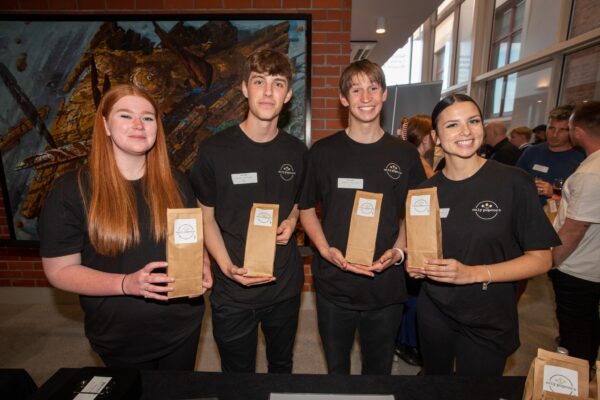
The Nayland College Business programme walks the walk to find and nurture the next generation of entrepreneurs.
The programme takes a comprehensive look from the accounting, business and economics perspectives at how decisions impact on businesses, society, individuals and the New Zealand economy.
The tempting variety of exciting and challenging subjects offered from Year 9 -13 allows success for students from a wide range of academic abilities.
Enthusiastic, dedicated and nationally recognised staff mentor students keen to continue in the Business field.
Nayland’s Business programme offers the full range of specialist subjects taught by specialist teachers with advanced qualifications and experience.
Nayland Business students have enjoyed success in national accounting, economics and business competitions at junior and senior level.
- Top and top 10 placings in national Young Enterprise exam
- Scholarship successes in NZQA exams
- Scholarships and awards from Universities
- Top of the South Young Enterprise Scholarship
- Practical applications in the junior school
For more information contact Gaye Bloomfield (gaye.bloomfield@nayland.school.nz)
Languages
Te Reo Māori
The Nayland College Te Reo Māori programme has the flexibility to cater for students at different levels of proficiency. This allows all students to progress at a manageable pace and have some success in the process. Each course is adapted as required to meet the needs of the current students.
Te Reo Māori covers the language, customs and traditions in Year 9 and during each successive year builds language development in Kōrero(speaking), Whakarongo (listening), Panui (Reading), Waihanga Tuhi (creative writing) and tuhituhi (writing) .
Students also have the opportunity to attend and/or participate in hui e.g. Powhiri, Ngā Manu Kōrero competitions and Kapa Haka. Kapa Haka is run on a weekly basis to prepare for powhiri and to tautoko the Principal for mihi and powhiri as needed.
Te Reo Māori at Nayland College also supports students to understand their personal place in the world. This may be especially important for those students who identify as Māori and for whom te reo Māori is a second language. For these students, the enhanced sense of connection to a rich cultural heritage can be deeply empowering.
To find out more contact Matt Penney (matt.penney@nayland.school.nz)
International Languages
Speaking an international language is an important skill for communicating in today’s global economy.
New Zealand depends largely on tourism and exports and having another language, combined with some understanding of the cultural world that goes with that language can help open doors in life after school.
Learning another language has also been proven to improve overall memory and recall – which certainly helps in other subject areas.
Spanish is offered from Year 9 and students gradually develop confidence in speaking and understanding so that by Year 13 they can debate social issues or discuss their opinions of a movie. Along the way they learn about the food, traditions, festivals, lifestyle, music and culture of the countries that speak the language that they study.
As part of their learning journey they may have the opportunity to go an exchange to Chile. We have established school-to-school relationships in a number of countries allowing students the chance to connect with real speakers of the language they have chosen to study.
NZ Sign Language
Year 9 and 10 students have the opportunity to choose NZ Sign Language as a half year module. They will learn the foundations of New Zealand Sign Language (NZSL), basic grammar, vocabulary, and features of a signed language. In Year 9 the module will cover the alphabet, numbers, feelings, greetings, needs & wants, family & friends and everyday activities. There will be a focus on Deaf culture and the history of NZSL. Students selecting the module at Year 10 will build upon what was covered in Year 9.
To find out more about the languages offered at Nayland College, contact Gaye Bloomfield (gaye.bloomfield@nayland.school.nz)
Pathways
The Nayland College Pathway courses develop life and employability skills while helping students to explore their future options beyond school. Students are supported to make informed choices through site visits, guests speakers, work placements and industry standards.
Included in our Pathway opportunities are the Gateway and award winning Trades Academy programmes.
Possible outcomes of our courses are; apprenticeships, on-the-job training and developing work-ready skills.
To find out more contact Gaye Bloomfield (gaye.bloomfield@nayland.school.nz)
